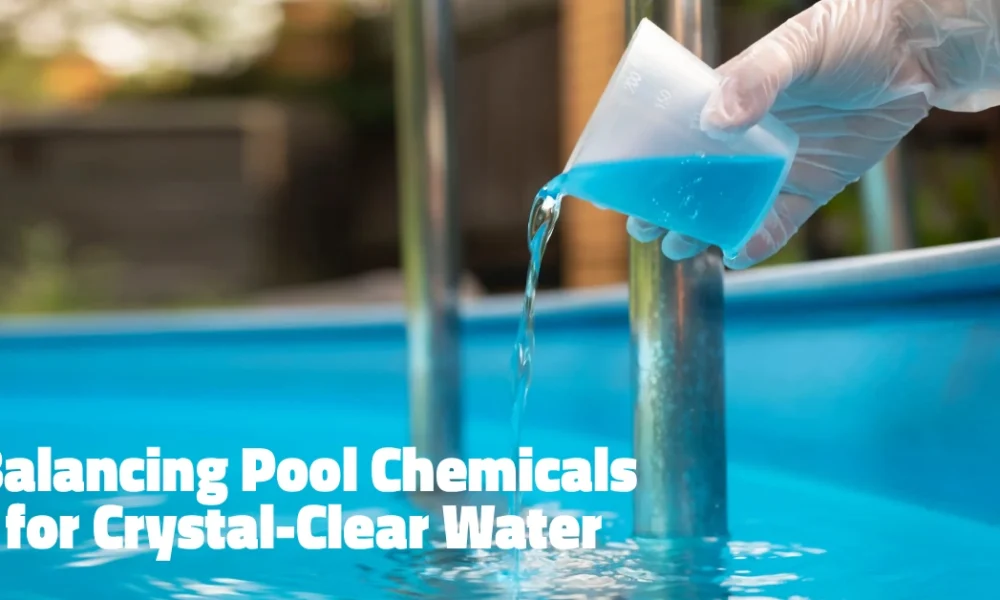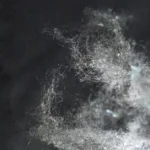Maintaining a sparkling clean swimming pool requires more than just skimming leaves and debris. The secret to crystal-clear, safe water lies in proper chemical balance and the right sanitization products. Whether you’re a new pool owner or looking to improve your maintenance routine, understanding pool chemicals is essential for creating a healthy swimming environment that your family can enjoy all season long.
Understanding Pool Chemistry Basics
Pool water chemistry revolves around three critical factors: pH levels, total alkalinity, and sanitizer concentration. These elements work together to create a balanced aquatic environment that prevents harmful bacteria growth while keeping the water comfortable for swimmers.
The ideal pH range for pool water sits between 7.2 and 7.6. When pH levels drift outside this range, swimmers may experience eye irritation, skin problems, or cloudy water. Total alkalinity acts as a buffer, helping stabilize pH levels and preventing rapid fluctuations that can make water management difficult.
Sanitizers eliminate bacteria, viruses, and other contaminants that naturally enter your pool through swimmers, rain, and environmental debris. Without proper sanitization, pools quickly become breeding grounds for harmful microorganisms that pose serious health risks.
The Role of Chlorine in Pool Maintenance
Chlorine remains the most popular and effective pool sanitizer available today. This powerful chemical works by breaking down organic contaminants and maintaining a residual level that continues protecting your water between treatments.
Stabilized chlorine tablets offer the most convenient and consistent method for maintaining proper sanitizer levels. These tablets dissolve slowly in automatic feeders or floating dispensers, providing steady chlorine release over several days. The stabilizer component protects chlorine molecules from UV degradation, making them ideal for outdoor pools exposed to direct sunlight.
Regular liquid chlorine requires frequent applications and doesn’t contain stabilizers, making it less efficient for routine maintenance. Tablets eliminate the guesswork and reduce the time spent on daily pool care, allowing you to focus on enjoying your investment rather than constantly monitoring chemical levels.
Types of Pool Chlorine Products
Pool owners have several chlorine options, each with distinct advantages depending on their specific needs and maintenance preferences.
Swimming pool chlorine tablets come in various sizes, typically 1-inch or 3-inch diameter options. The larger tablets work best for most residential pools because they dissolve more slowly and require less frequent replacement. These tablets contain trichlor, which has a slightly acidic pH that helps prevent the water from becoming too alkaline over time.
Granular chlorine products offer fast-acting sanitization for shock treatments or quick chlorine boosts. However, they require more frequent monitoring and application compared to tablet systems.
Liquid chlorine provides immediate results but lacks staying power. Professional pool services often use liquid products for their speed and precision, but homeowners typically find tablets more practical for routine maintenance.
Environmental Impact and Safety Considerations
Modern pool chemicals undergo rigorous testing to ensure they meet environmental safety standards. Properly maintained pools using appropriate chemical levels pose minimal environmental risk when water is disposed of correctly.
Chlorine naturally breaks down into harmless compounds when exposed to sunlight and organic matter. The key lies in using the right amount – enough to maintain sanitation without excessive residuals that could impact the surrounding environment.
When selecting pool chemicals, choose products from reputable manufacturers who provide clear usage instructions and safety data sheets. Proper storage in cool, dry locations away from other chemicals prevents dangerous reactions and extends product shelf life.
Installation and Maintenance Best Practices
Setting up an effective chemical management system starts with understanding your pool’s specific requirements. Calculate your pool’s volume to determine proper dosing amounts, as over-treatment can be just as problematic as under-treatment.
Automatic chlorinators provide the most consistent results for tablet-based systems. These devices allow precise control over dissolution rates and eliminate the need for floating dispensers that can create uneven distribution patterns.
Test water chemistry at least twice weekly during swimming season, adjusting chemicals as needed to maintain proper balance. Digital test kits offer more accurate readings than traditional strip tests, helping you make informed decisions about chemical additions.
Troubleshooting Common Pool Problems
Cloudy water often indicates inadequate sanitization or poor filtration. Increase chlorine levels temporarily while ensuring your filter system operates efficiently. Backwash sand or DE filters regularly, and clean cartridge filters according to manufacturer recommendations.
Green water typically signals algae growth due to low chlorine levels or poor circulation. Address algae problems immediately with shock treatments followed by consistent sanitizer maintenance to prevent recurrence.
Strong chlorine odors actually indicate insufficient chlorine levels rather than excessive amounts. Combined chlorines create the offensive smell, requiring shock treatment to break down these compounds and restore proper water quality.
Professional vs. DIY Pool Chemical Management
Many pool owners successfully maintain their water using basic chemical knowledge and regular testing. However, complex problems or persistent imbalances may require professional intervention.
Pool service professionals bring expertise in water chemistry troubleshooting and access to commercial-grade products not available to consumers. They can identify underlying issues that might not be apparent to homeowners, saving time and money in the long run.
Consider professional help when starting up pools after winter closings, dealing with recurring algae problems, or managing pools with unusual features like spas, waterfalls, or saltwater systems.
Conclusion
Effective pool chemical management combines the right products with consistent maintenance practices. Stabilized chlorine tablets and swimming pool chlorine tablets provide reliable sanitization that keeps your pool safe and inviting throughout the swimming season. By understanding basic water chemistry principles and following proven maintenance routines, you can enjoy crystal-clear water that enhances your outdoor living experience.
Remember that proper chemical balance protects both your investment and your family’s health. Take time to learn your pool’s specific needs, invest in quality products, and maintain consistent testing schedules. With the right approach, pool maintenance becomes a simple routine that ensures countless hours of safe, enjoyable swimming.
For comprehensive information about pool chemicals and maintenance supplies, visit https://www.oceanvistapool.com/ to explore professional-grade solutions for your pool care needs.




No Comment! Be the first one.